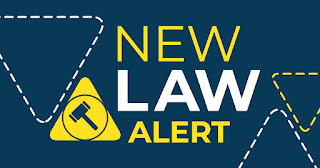A COVID-19 property tax relief bill is on its way to Governor Cuomo's desk for signature. The bill, S8138B, empowers local taxing jurisdictions to defer property taxes for up to 120 days from their original due date. Alternatively, the taxing jurisdiction can create a payment plan with similar time restrictions. This special legislation will automatically expire with the State Disaster Emergency Declaration.
The bill does not require all local taxing jurisdictions to provide deferral options to taxpayers. It only gives them the option to do so. Assuming Governor Cuomo signs this bill, look to your tax assessor's office to see if your jurisdiction will make use of this new legislation to provide COVID-19 property tax relief.
 |










